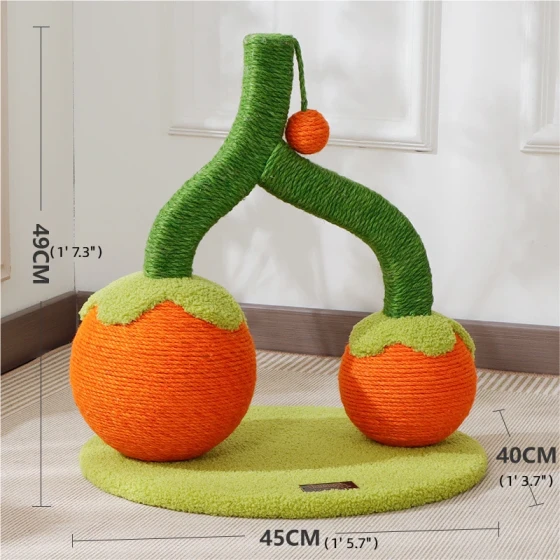Will Cats Miss Their Owners During Boarding_How Deep Is the Longing When Away from Home
As an observer who has been deeply involved in the field of cat behavior and human-pet relationships for a long time, this question is like dropping a deep water bomb, stirring ripples in countless cat owners' hearts—when our “master” goes out for boarding, do they really “miss” us even a little? Don’t rush, this issue is far more complex than just “are cats aloof and indifferent.” The logic behind it is much deeper than you imagine.
Directly to the core: Will cats miss their owners during boarding? The answer is: they certainly do feel your “absence,” which triggers a series of complex cat-like emotions and behaviors, but this is not completely equivalent to the human concept of “longing.” It is more of a reaction to a familiar environment and primary attachment figure.

On Zhihu, some jokers like to say, “Cats are just food-providing machines. Do you think they love you? No, they only love the food bowl.” This kind of statement underestimates cats’ feelings and oversimplifies the complexity of human-cat relationships. Scientific research has long proven that cats are not as lonely and detached as traditional impressions suggest. They can establish strong emotional bonds with humans, with attachment patterns similar to those of human infants and dogs. A study from Oregon State University found that in the "secure base test," cats behaved relaxed and explored the environment after returning to their owners, just like securely attached human infants and dogs. This shows that cats really regard their owners as a source of security.
So, where is the “missing” reflected?
When we leave home, especially for a long time, for cats this is not just losing a “bipedal beast” that provides services (feeding, scooping litter, playing), but also a shaking of their familiar world. Cats highly depend on environmental stability and daily routines. Moving, strangers coming into the house, or even small changes in your schedule, may trigger their stress responses. Boarding uproots them and places them in a new environment full of unfamiliar smells, sounds, and variables.
Under this huge environmental change, cats show various stress or separation-related behaviors, which to humans seem like “missing.”
- Behavior Microscope: You may hear boarding staff say that after your cat arrives, it loses appetite, hides in corners, or overgrooms, or eliminates outside the litter box. These are signs of stress and anxiety. Sometimes they even show vomiting and diarrhea issues. More extreme cases exhibit aggression, hissing, swatting, or avoidance toward unfamiliar caregivers—these are manifestations of fear and insecurity. It’s not that they “miss you so much they can’t eat or sleep,” but that your absence breaks their safety net. The new environment leaves them lost and highly stressed. Like some friends who experience "culture shock" in a strange city, cats’ “culture shock” is even more intuitive and intense.
- The "Coming Home" Ritual: Some cats get extremely enthusiastic when you come home—clingy, purring non-stop, even following your every step. This is certainly a sign of their happiness and security when you return, proving their attachment. But some cats may act “angry,” ignoring you or giving you a coquettish back. This doesn’t mean they don’t love or “miss” you; it may be their way of expressing dissatisfaction, reestablishing boundaries, or trying to process and adapt to the emotional fluctuations caused by your brief absence. Imagine if your best friend suddenly disappeared for a week—you might feel awkward at first before giving a big hug.
Longing when away from home is a cat’s desire for security and stable relationships.
Describing cats’ feelings toward their owners as “longing” might not be precise; “attachment” and “need for a stable relationship” fit better. They remember your scent, voice (studies show cats can distinguish their owner’s voice and even recognize their own name), and develop a unique interaction pattern with you. When all this is disrupted, they feel uneasy, which manifests through various behaviors. This feeling is closer to “something in my world feels off, the person who makes me feel safe and comfortable is gone” anxiety.
Just like the Austrian ethologist Konrad Lorenz studied imprinting in birds, a cat’s attachment style is shaped by interactions with the primary caregiver in their early life. Cats raised in a loving and stable environment are more likely to form secure attachments, being more relaxed and exploratory when their owner is present; cats that experience instability or trauma may show insecure attachment, becoming more anxious during separations or showing avoidance when the owner returns.
So, the depth of their “longing” depends not only on the emotional intensity but also on how solid their inner security is and their ability to cope with environmental change.
How to lighten the "longing" when away from home?
Understanding this “longing” and stress response in cats, what can we as owners do?
- Choose a reliable boarding environment: This is not advertising but a practical necessity. A good boarding place should provide cats with an independent, clean, and comfortable space, avoiding noise and smell stimuli caused by mixing cats and dogs. It’s best if there are elevated resting and hiding spots. Some high-end cat hotels even offer real-time monitoring so you can check on your cat anytime, which also helps relieve owners’ separation anxiety (yes, sometimes owners are even more anxious than cats).
- Bring the “scent of home”: Before leaving, prepare several items carrying your and the home’s scent, such as blankets, old clothes, and your cat’s favorite toys, as well as its usual food and water bowls. These familiar smells offer great comfort in an unfamiliar environment, helping build a sense of security.
- Stay calm and reduce drama: Cats can sense your anxiety and reluctance before you leave. Try to maintain a calm and positive attitude and avoid overly emotional farewell rituals. Sometimes leaving quietly reduces your cat’s anxiety more effectively than tearful goodbyes.
- Patient companionship after returning home: Once back from boarding, give your cat some time to readjust. They may need time to calm down emotionally and rebuild their feeling of safety at home. Provide a quiet space, interact gently with soft tones, and reconnect through play and petting.
In the end, cats’ “longing” during boarding is their reaction to the disruption of familiar routines and the temporary absence of their primary attachment figure. This feeling may not be as poetic or complex as humans', but it is just as deep and real. They are not emotionless creatures; they just express their emotions and needs in their own way. As owners, what we need to do is understand their language, give them enough security and support, so that this "longing when away from home" does not become an unbearable burden.
After all, we are just “bipedal tool people,” but for cats, we are their important “secure base” and source of warmth in their world. This relationship deserves our understanding and cherishing.

-560x560.webp)



